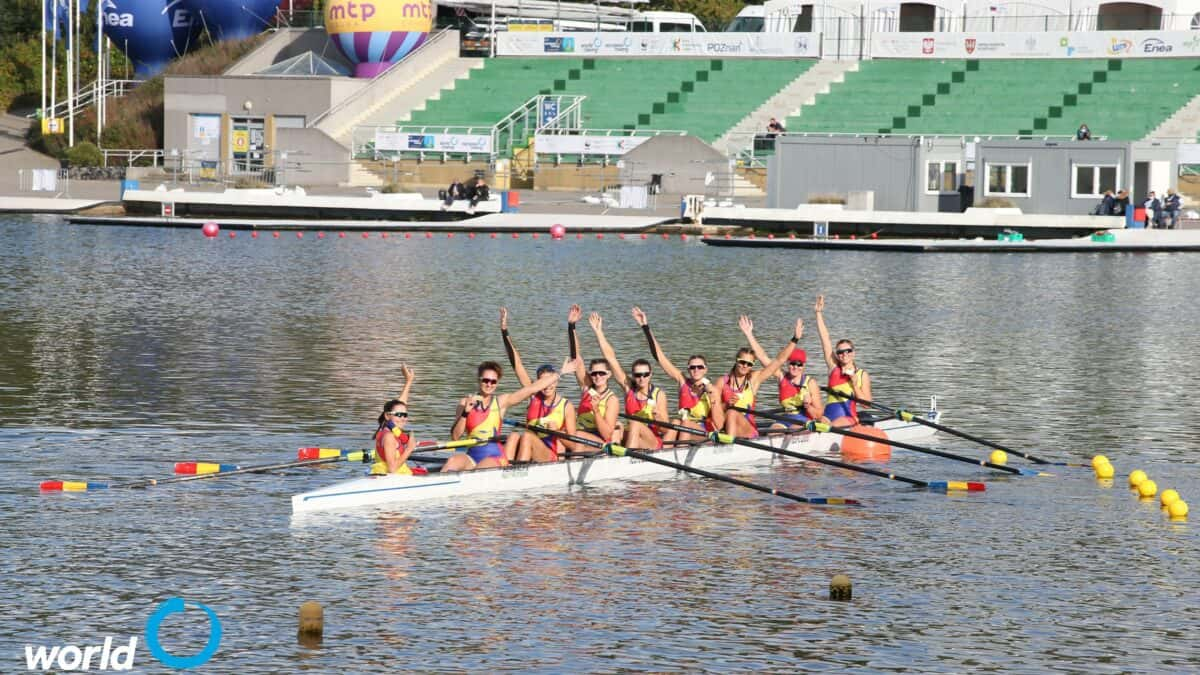
27 Nov 2020
Bringing payment to rowing in Eastern Europe
Serbia, Slovenia and Romania have all boasted top athletes in the sport of rowing in the last 20 years. Their National Federations also all have similar funding pathways. The government, through either the Ministry of Sport or the National Olympic Committee, provides funding to the National Federation. This funding covers basic costs such as training camps, races and administration.
However, the way funding is provided to individual athletes differs significantly between countries and poses both advantages and disadvantages. It all has to do with when and how the funding is provided.
In Serbia, the funding is covered from different avenues, including the Serbian government and the Serbian Olympic Committee. Top athletes can also receive a monthly scholarship that is determined by their performance results.
“There are three levels for athlete scholarships,” says Nikola Stojic, a former elite rower and current Event Manager for the Serbian National Federation. “One is winning medals at the Olympics, World Championships or European Championships, two is if you make it into the B-finals at those events and the third level is if you have good results at the national level.”
If athletes achieve one of these levels, they will receive funding on a tiered basis. Every year they have to maintain some level of results in order to continue to receive the funds. This is a standard funding pathway. However, the Serbian system differs from others when the athletes turn 40. They call it the ‘athlete pension’. It is a salary for athletes who have won a medal at the top level: Olympic Games, World Championships, or European Championships.
“The athlete pension is quite a good salary,” Stojic says. “It started in 2006, so it’s relatively new, but I qualified for it.”
“For me, I am thankful that my government supports me – and I’m definitely more relaxed than I would have been without it,” he says laughing.
But Stojic is quick to point out that the athlete pension is not a good motivator for young athletes.
“When I talk to young athletes, I say that money cannot be a goal for anybody. The best things is just to win a medal, it’s not for the salary,” he says. “And when they are really young it is so far away. There are so many steps you need to think about first,” he adds.
In Romania there is a different system for the athlete pension and it has caused some talent-retention problems. Romanian National Team Coach Dorin Alupei explains that athletes also receive individual funding based on their results. And they receive an athlete pension when they retire from rowing.
“We lost some rowers following the 2016 Olympics and the 2017 World Rowing Championships,” Alupei says. “They were young, but they had won medals and decided to retire.”
Alupei says that the pension programme makes it difficult to retain talent. “I think there needs to be some type of age limit,” he says, noting that the system in Serbia may work better.
Meanwhile, the Slovenian Rowing Federation is struggling with loss of talent at a different stage. While young rowers can receive scholarships based on junior and under-23 performance, they lose their funding when they transition to the senior level.
“The senior-level athletes must get a good result at the Olympic or international level, then they are eligible for a job within the national system: the army, police or customs,” says Secretary General of the Slovenian Rowing Federation Jernej Slivnik.
“The biggest challenge in Slovenia is the transition from under-23 to senior. If they were good at the under-23 level, they may still need time to achieve at the senior level, but they are not eligible for funding,” Slivnik says.
“We are looking for some solution. The National Federation tries to fund some athletes during that transition if we can,” he says.
In Slovenia the ‘athlete pension’ does not start until the athlete reaches the retirement age of 65. Athletes who won medals at the top level will receive the highest pension plan, but until then, upon retirement from rowing they have to find work.
“They have to keep working,” Slivnik says. “This is why the Slovenian federation has been working together with other organisations to help athletes with their career transitions.”
These different pathways highlight the difficulties federations have both in securing funds and retaining talented athletes. For a few lucky ones, their rowing career may pay off big, but for the majority, rowing glory remains in the heart, not the hands.

